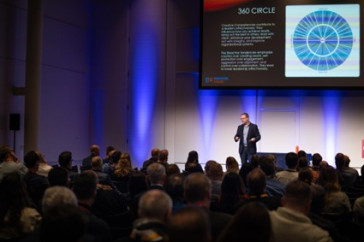De afgelopen jaren is in de media in toenemende mate bericht en gerapporteerd door journalistiek en toezichthouder over de wijze waarop accountants hun rol als “hoeder van het maatschappelijk verkeer”vervullen. Corruptieschandalen (Ballast Nedam), geknoei met cijfers en waarderingen (Ahold, Vestia, Steinhoff) en bedrijven die onder het toeziend oog van accountants failliet gingen (DSB en IMtech) hebben ertoe bijgedragen dat het accountantsberoep in zwaar weer is terecht gekomen en dat de competentie van degenen die het beroep uitoefenen in twijfel wordt getrokken. De vraag in vervolg op het eerder in TEO geplaatste artikel (Soft Skills deel 1) is in hoeverre bedrijfseconomische en accountant opleidingen kunnen bijdragen aan een noodzakelijke verandering.
MULTIFILE

The hard side in total quality management of measurement and data analysis can only be successful if it is replenished with the soft side, the people side. This conclusion has serious consequences for the education of professionals, especially managers. Managers should be trained in soft skills, trained in managing themselves and their relations with others. The recent research done by Meduprof-S focuses on the question which skills are needed and on the extent to which business schools quality standards consider soft skills to be important in the education of managers .

While many researchers have investigated soft skills for different roles related to business, engineering, healthcare and others, the soft skills needed by the chief information security officer (CISO) in a leadership position are not studied in-depth. This paper describes a first study aimed at filling this gap. In this multimethod research, both the business leaders perspective as well as an analysis of CISO job ads is studied. The methodology used to capture the business leaders perspective is via a Delphi study and the jobs adds are studied using a quantitative content analysis. With an increasing threat to information security for companies, the CISO role is moving from a technical role to an executive role. This executive function is responsible for information security across all layers of an organisation. To ensure compliance with the security policy among different groups within the company, such as employees, the board, and the IT department, the CISO must be able to adopt different postures. Soft skills are thus required to be able to assume this leadership role in the organisation. We found that when business leaders were asked about the most important soft skills the top three consisted out of 'communication', ‘leadership’ and 'interpersonal' skills while 'courtesy' was last on the list for a CISO leadership role.
MULTIFILE

Energy transition is key to achieving a sustainable future. In this transition, an often neglected pillar is raising awareness and educating youth on the benefits, complexities, and urgency of renewable energy supply and energy efficiency. The Master Energy for Society, and particularly the course “Society in Transition”, aims at providing a first overview on the urgency and complexities of the energy transition. However, educating on the energy transition brings challenges: it is a complex topic to understand for students, especially when they have diverse backgrounds. In the last years we have seen a growing interest in the use of gamification approaches in higher institutions. While most practices have been related to digital gaming approaches, there is a new trend: escape rooms. The intended output and proposed innovation is therefore the development and application of an escape room on energy transition to increase knowledge and raise motivation among our students by addressing both hard and soft skills in an innovative and original way. This project is interdisciplinary, multi-disciplinary and transdisciplinary due to the complexity of the topic; it consists of three different stages, including evaluation, and requires the involvement of students and colleagues from the master program. We are confident that this proposed innovation can lead to an improvement, based on relevant literature and previous experiences in other institutions, and has the potential to be successfully implemented in other higher education institutions in The Netherlands.
Het senior management op C-niveau stelt steeds vaker een CISO (Chief Information Security Officer) aan welke plaats neemt in het management team of hier rechtstreeks aan rapporteert. Maar de CISO is vaak een persoon met een bèta achtergrond. Vaktechnisch inhoudelijk zijn deze personen vaak zeer bekwaam maar missen veelal de juiste skills om zich staande te kunnen houden op managementniveau. Dit onderzoek richt zich op de doorlopende evolutie van CISO leidershap en benodigde skills om successvol te woren en blijven.
